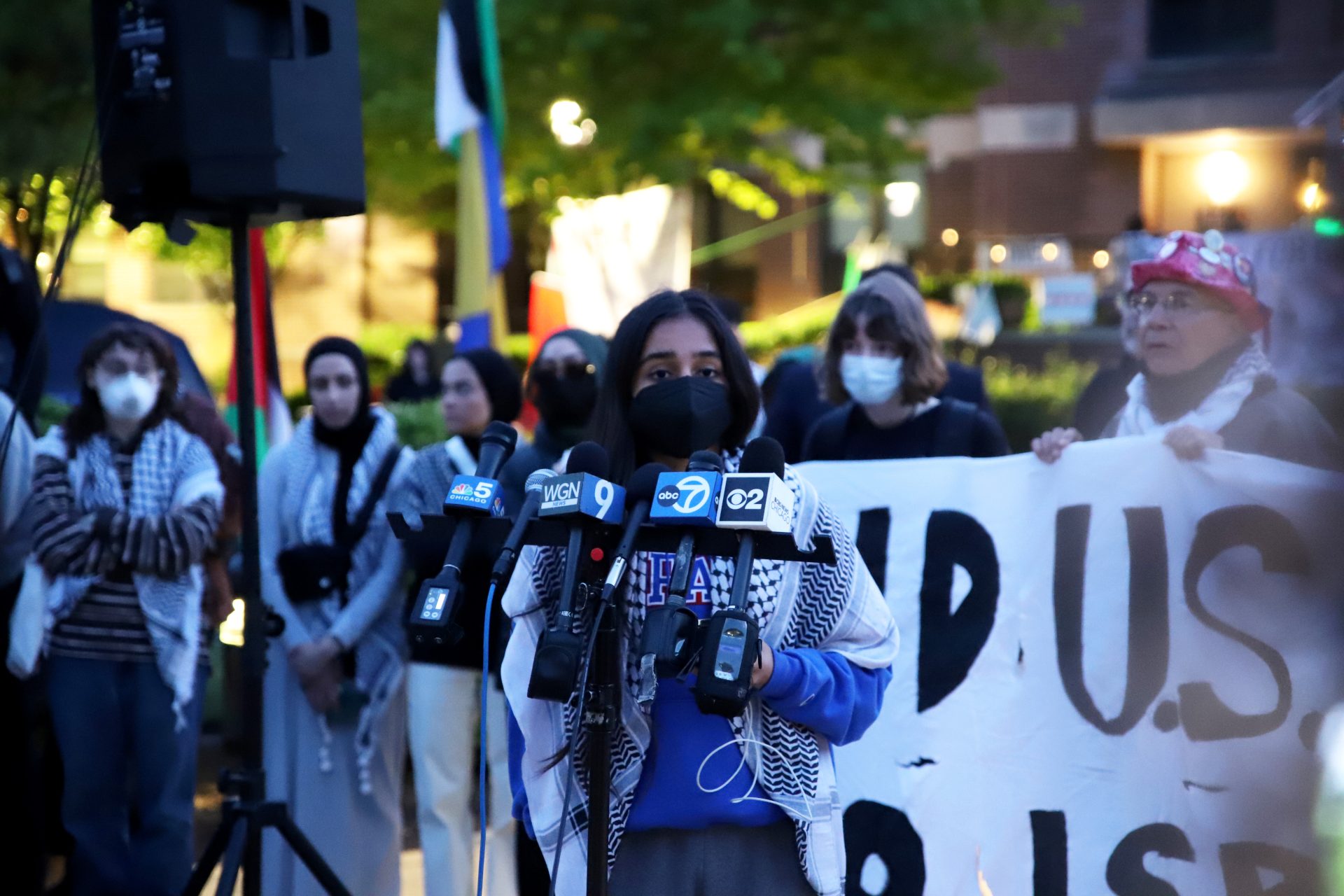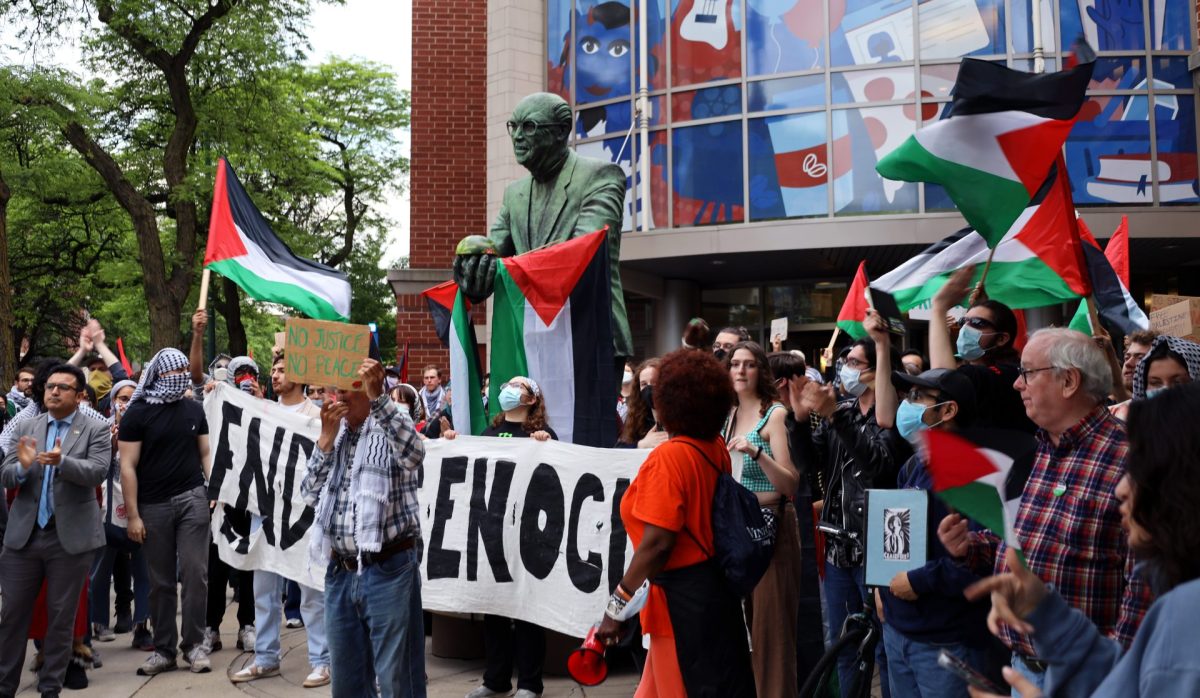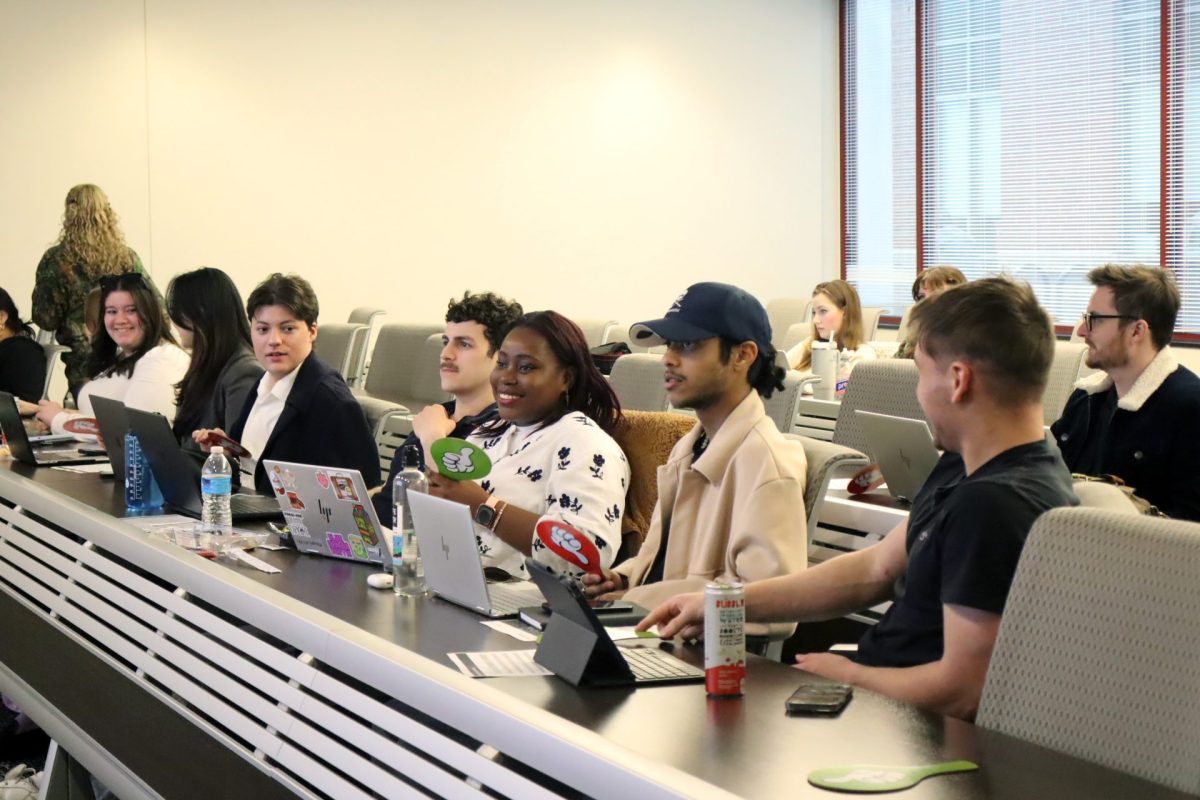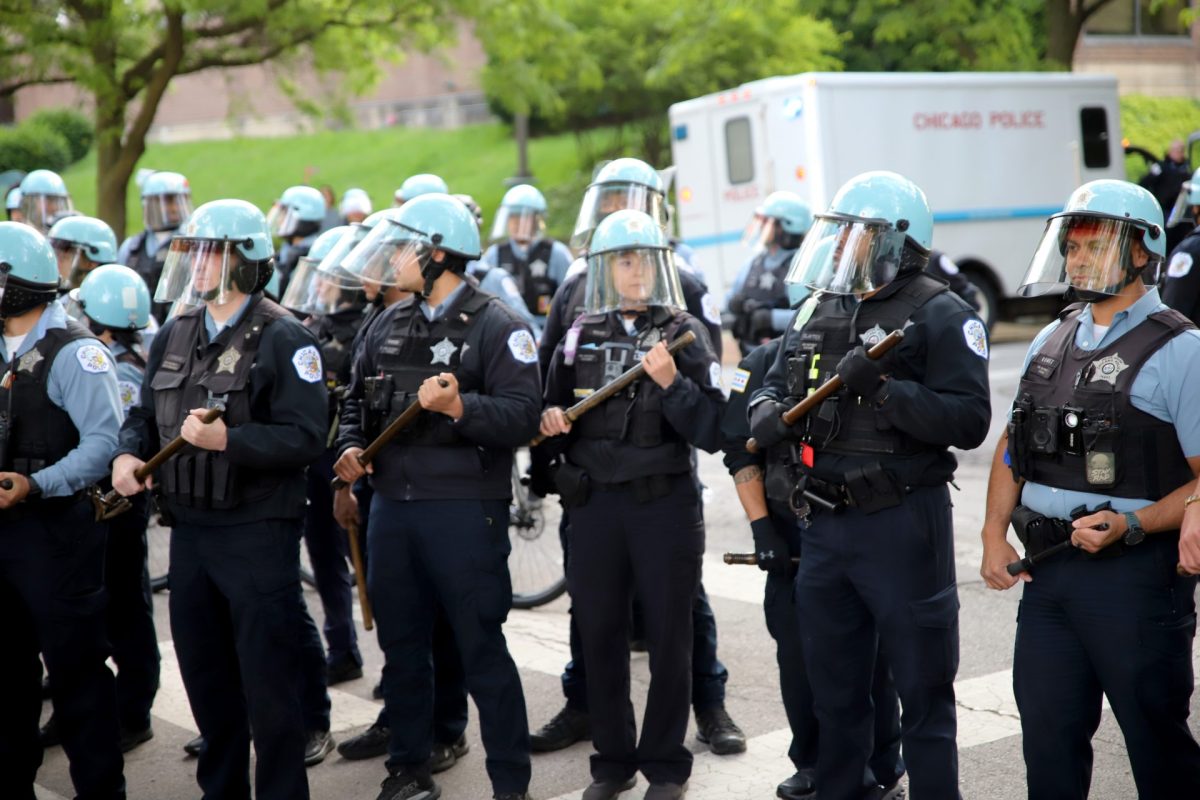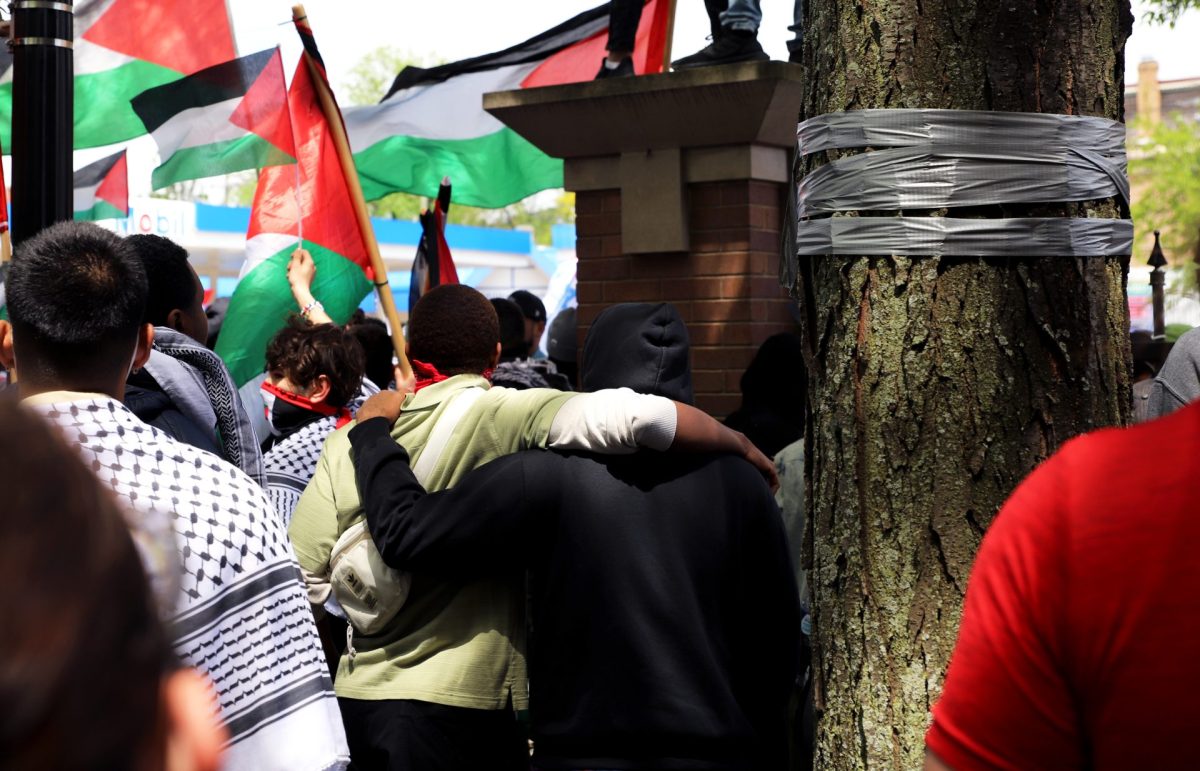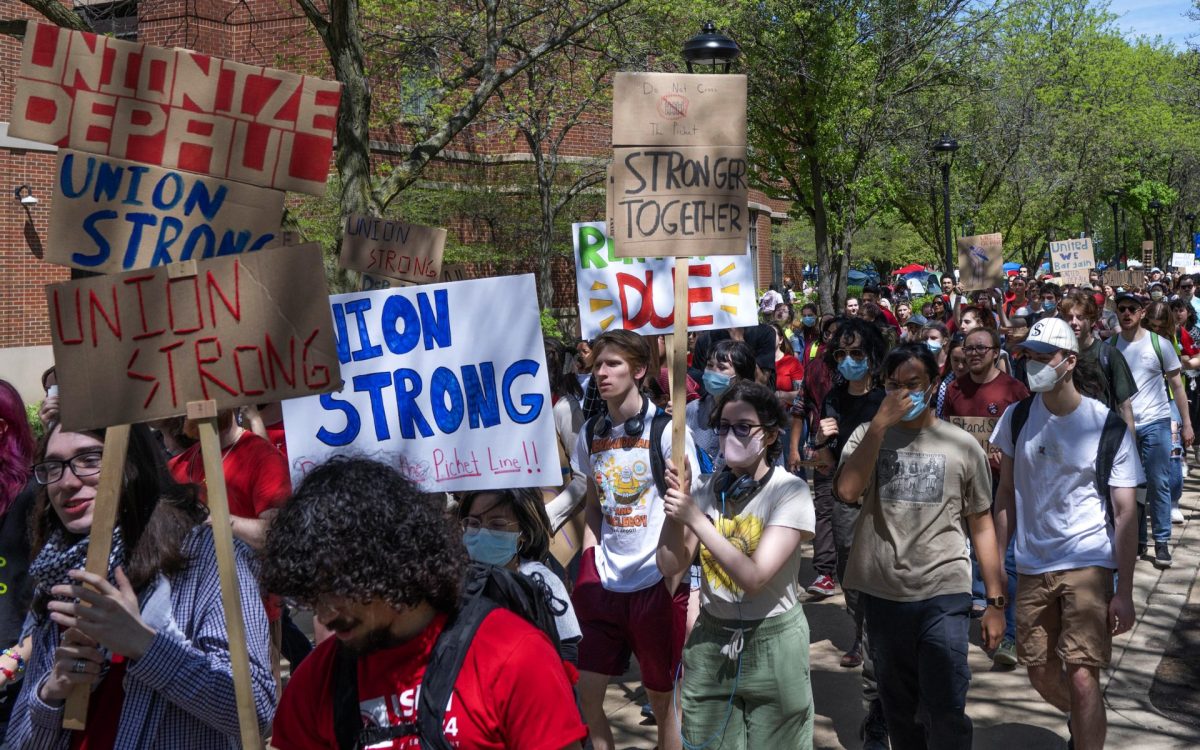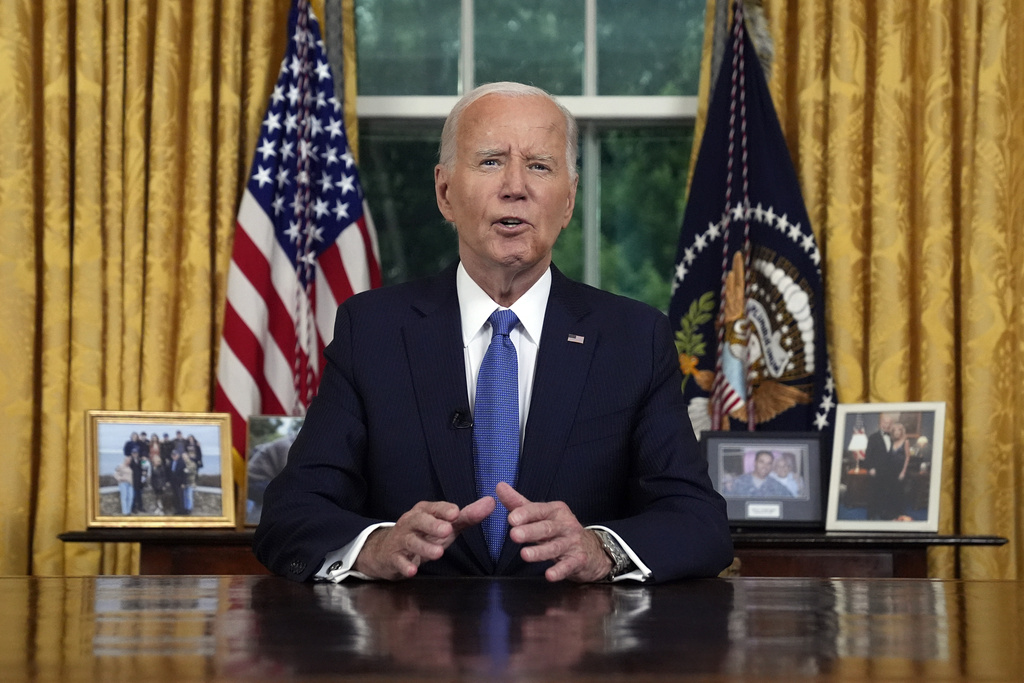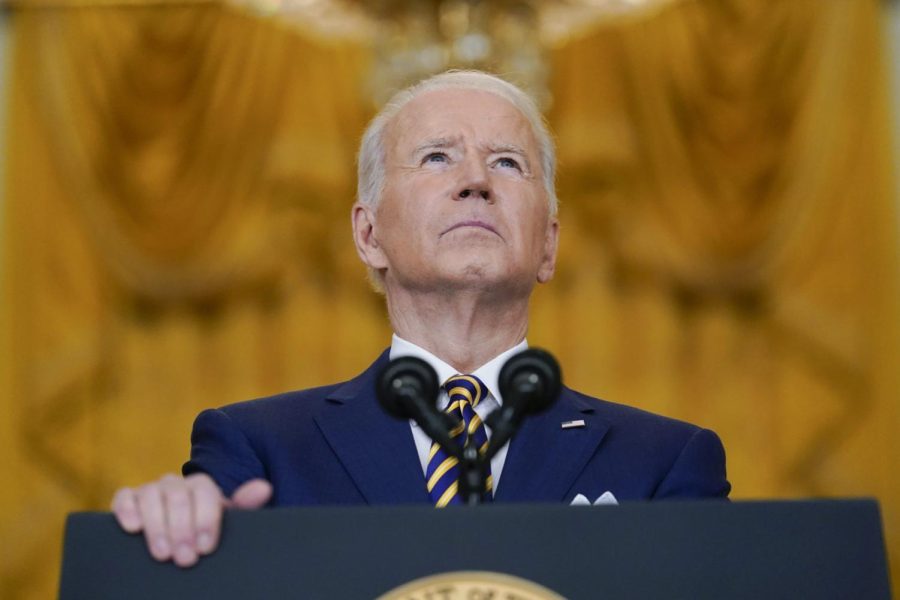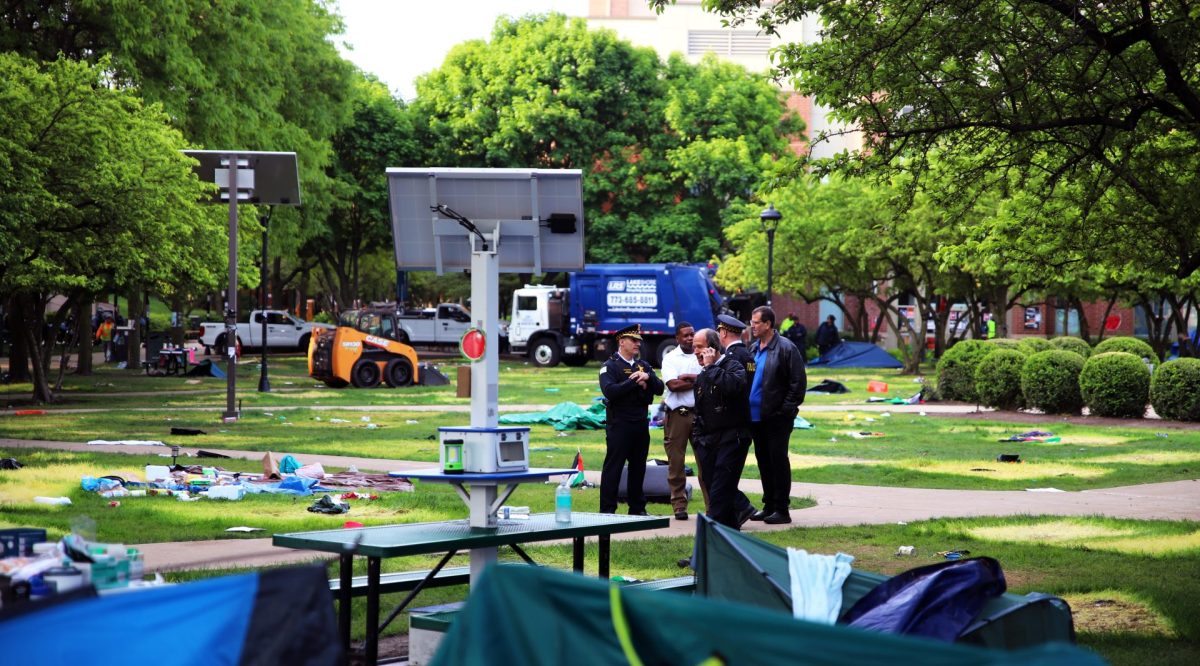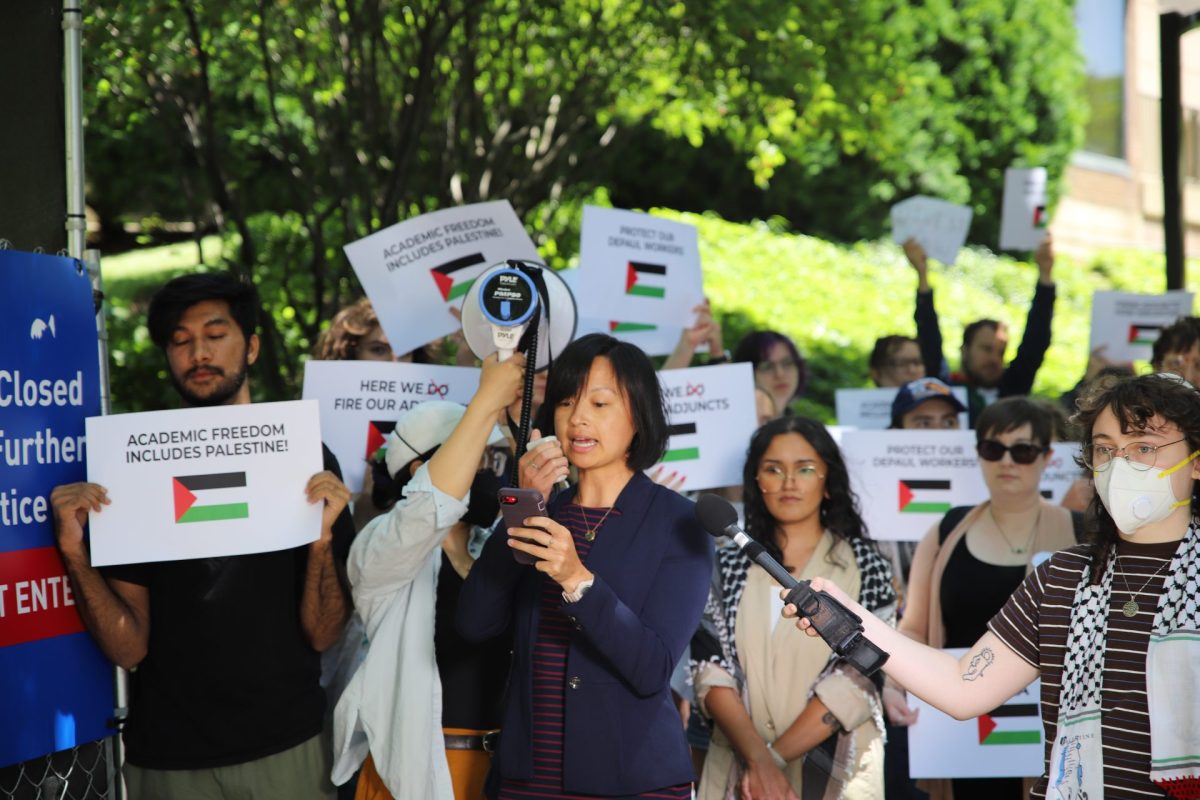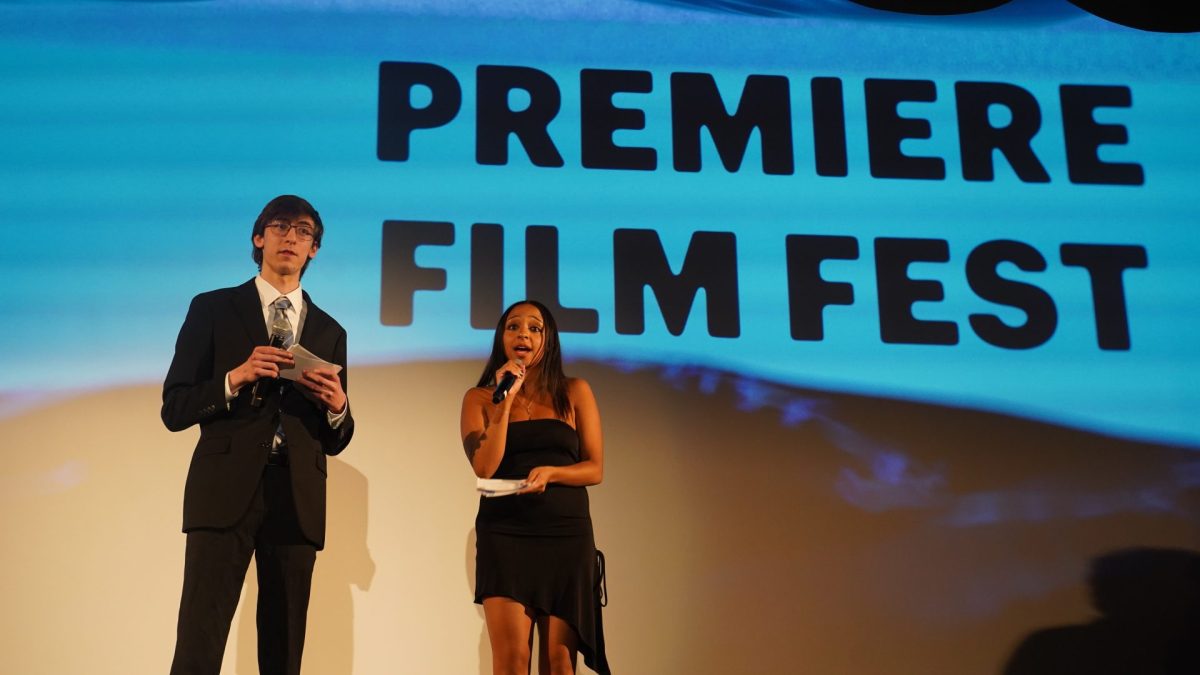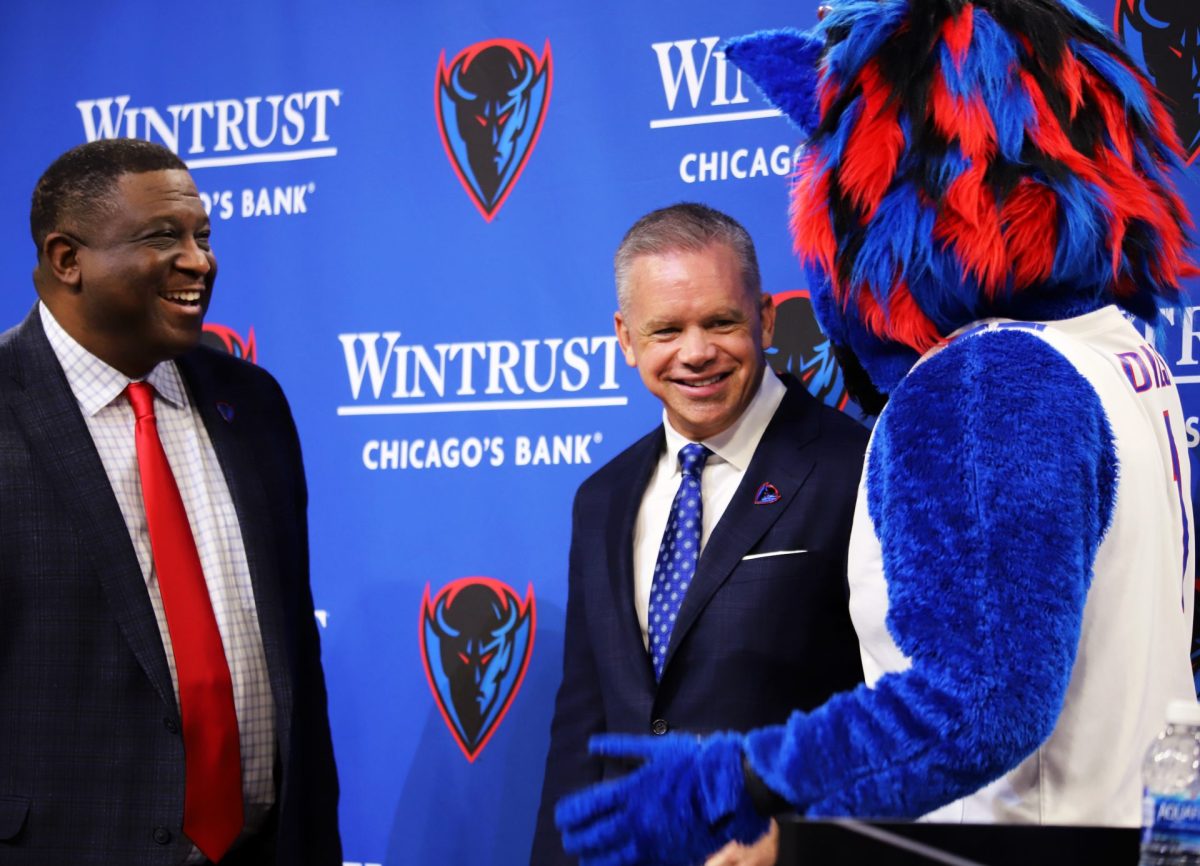The DePaul Divestment Coalition hosted a press conference today at 8 p.m. to address the university calling a stalemate on their negotiations. In speeches from various speakers, the coalition reiterated their determination for DePaul’s divestment and their belief that the university engagement team continually acted in bad faith during negotiations.
The coalition revealed that at least two attorneys were brought in to help them during negotiations. One of the attorneys, Benjamin Meyer, spoke at the press conference and condemned the university’s decision to host negotiation meetings on two religious holidays: the Muslim day of prayer and Shabbat.
“I hope this matter can be resolved through negotiation, not violence,” Meyer said.
Meyer called the university’s response to the coalition’s demands and negotiation tactics “disappointing.”
Kristin Claes Mathews, senior director of strategic communications at DePaul, said that students from the coalition “originally indicated they were available and willing to meet on Friday.”
“Leadership felt it was urgent to meet due to safety concerns for the encampment, which included the credible threats the university received from external entities on Friday,” Mathews told The DePaulia in an email.
Negotiations between the university and the coalition continued on Saturday, May 11 at 3 p.m.
Byron Sigcho-Lopez, alderman for the 25th Ward, also spoke at the press conference and commended the students for protesting peacefully.
“The students are using their voices,” said Sigcho-Lopez, who also gave a speech at the encampment on Day 5. “They are on the right side of history, and they’re doing it peacefully without any provocation.”
Sigcho-Lopez urged DePaul’s engagement team to return to negotiations.
“We’re asking the university to come back to the negotiation table, to refrain from using any force against the students that are peacefully demonstrating,” he said.
The university outlined responses to the coalition’s demands and presented several conditions for meeting those demands in a document presented to coalition leaders at 9 a.m. on May 11.
These responses included working with legal counsel and other resources to emphasize doxing as prohibited behavior in existing university policies, agreeing that only university-sanctioned study abroad programs can use the DePaul brand, and reaffirming their commitment to creating a Southwest Asian and North African Center.
The document was later shared with the DePaul community by the office of DePaul President Robert Manuel at 8:12 p.m, on May 11, shortly after the press conference began.
“These offers are predicated on the expectation of an orderly removal of the encampment by noon on May 12 and do not cover future acts of any participants from the encampment,” the document read.
It stipulated that The DePaul Divestment Coalition take down the encampment and agree not to “reestablish an encampment on DePaul property or create organized disruptions during the final exam period or any of DePaul’s upcoming commencement exercises.”
In the document, DePaul administrators also agreed to host a dialogue between the Board of Trustees leadership and a maximum of six student leaders from the coalition within the next six months.
In an interview with The DePaulia, Student Government Association president Parveen Mundi said there were no Board of Trustees members present during any negotiation meetings between the engagement parties.
“We found that they were unwilling or unresponsive to a huge number of (our demands) … especially around divestment,” Mundi said.
While negotiations have ended in a stalemate, Mundi said that the fight will continue even if the encampment is removed.
“This university is currently approaching its willingness to negotiate as it lacks the imagination and boldness to imagine a world in which these demands could be met,” Mundi said. “I say that because I believe, truly, that this institution has had the opportunity to do business differently without admission of compassion and justice.”
Related Stories:
- ‘We plan to stay here’: Pro-Palestinian demonstrators firm in demands for divestment from Israel; encampment continues on DePaul Quad
- BREAKING: DePaul President responds to divestment demands



